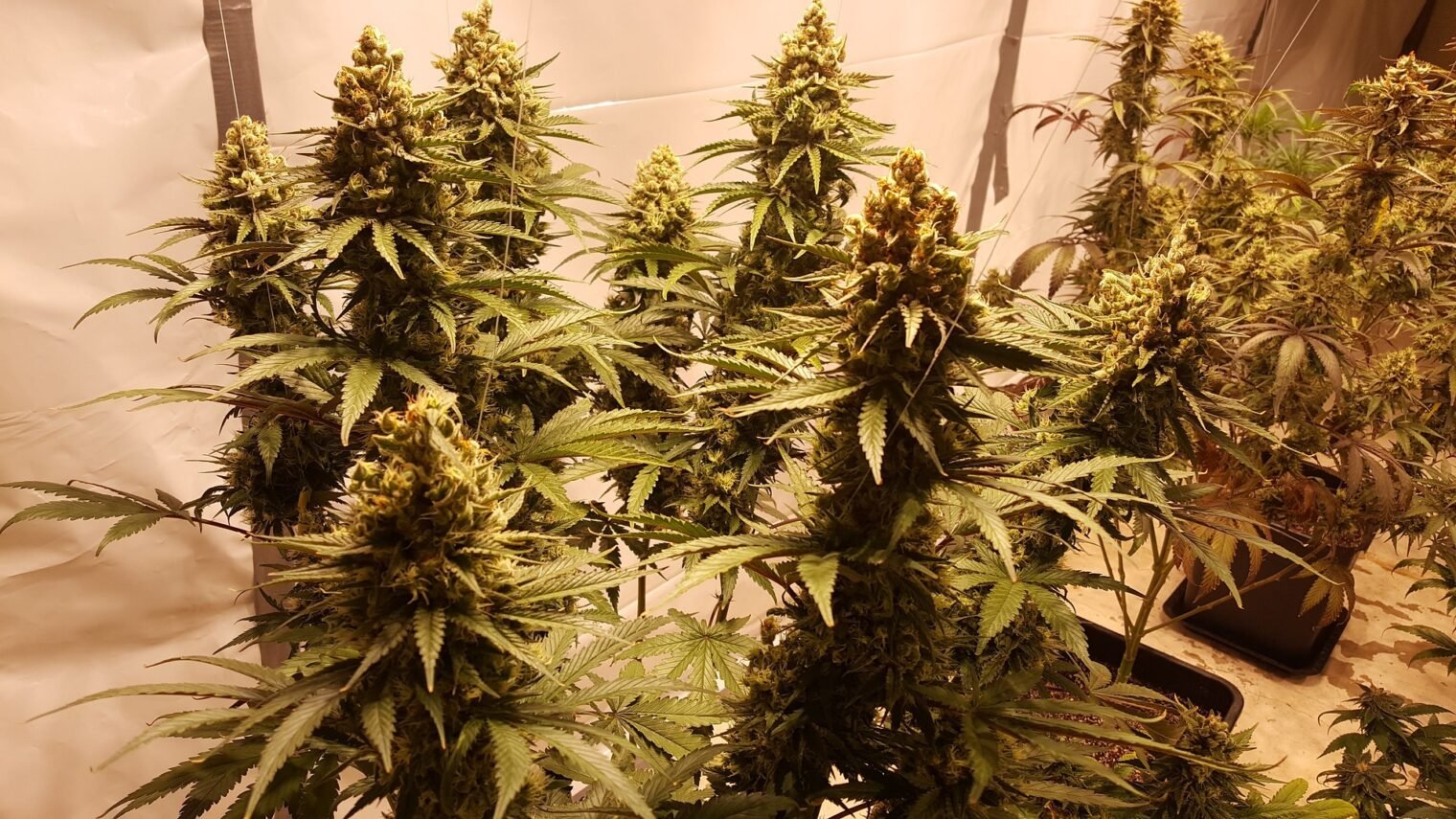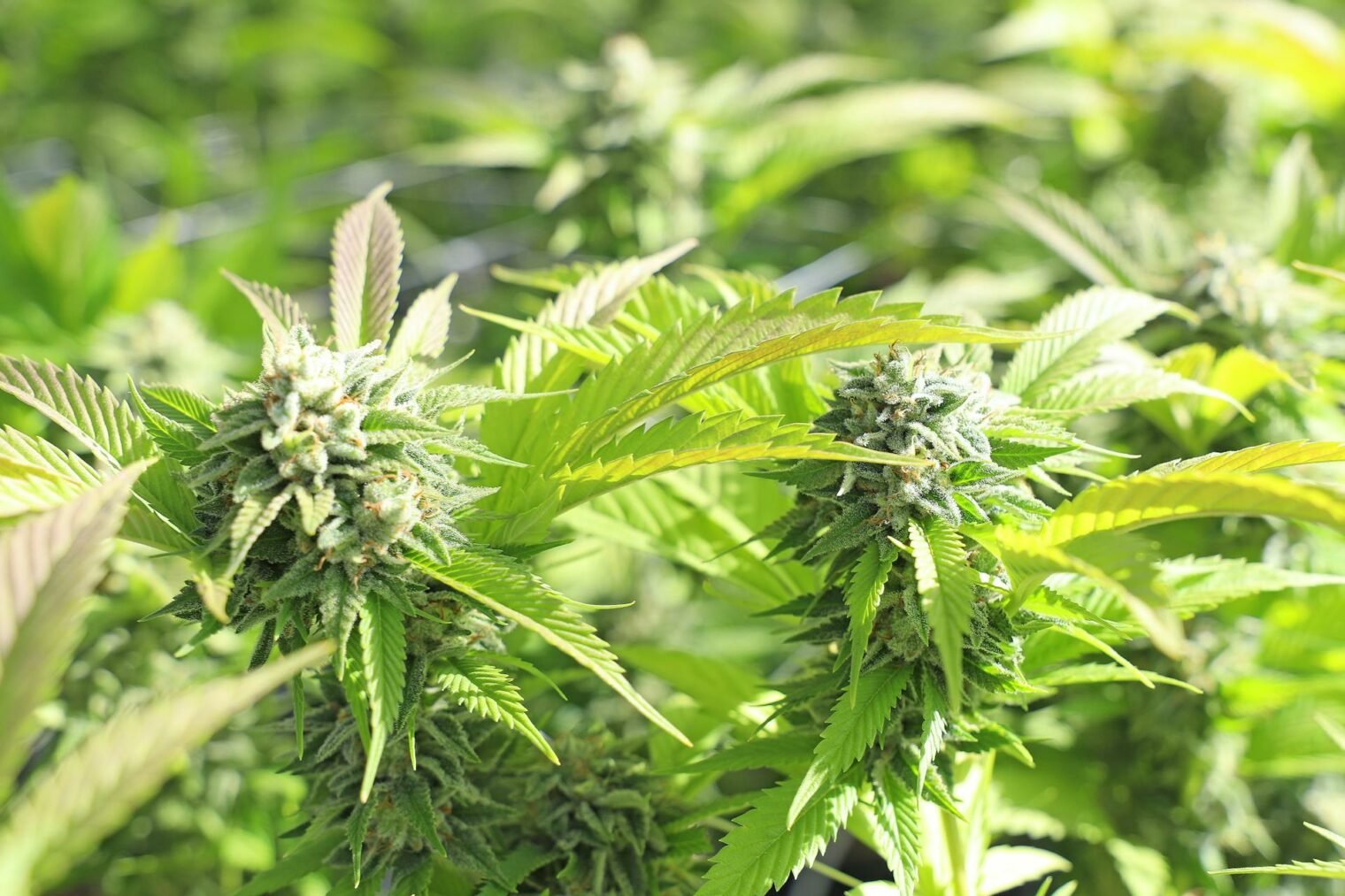Setting Up Organic Thai Marijuana Farms in 2024

Table of Contents
Starting your own organic Thai marijuana farms in 2024? Many people around the world are looking into cannabis cultivation as a promising business venture, especially with changing laws and attitudes towards marijuana use.
In Thailand, the shift toward legalizing and regulating cannabis presents new opportunities. A fascinating fact to consider is that Thailand became the first Asian country to legalize medical marijuana in 2018.
This move has sparked interest in both local agriculture and international investment.
This article guides you through setting up an organic marijuana farm in Thailand from scratch. From understanding legal requirements to adopting sustainable farming practices, we cover all the essential steps for budding entrepreneurs.
Our aim is to help you create a successful, eco-friendly cannabis operation that can thrive within Thai regulations. Ready to grow by setting up Thai marijuana farms in 2024? Let’s do it!
The Benefits of Organic Farming
Organic farming offers reduced environmental impact, improved soil health, healthier and safer products, as well as better taste and flavor. It promotes responsible stewardship of land and natural resources while ensuring high-quality produce for consumers.
Reduced environmental impact
Setting Up Organic Thai Marijuana Farms in 2024 prioritizes environmentally friendly methods. These practices significantly cut down on water and air pollution, showing a deep respect for our planet.
By choosing organic cannabis farming, growers ensure that harmful chemicals stay out of the soil and nearby water sources. This commitment to cleaner farming techniques protects local ecosystems and promotes biodiversity.
Using sustainable practices in cannabis cultivation also reduces carbon footprints, making it a green choice for the industry. Farmers who adopt organic methods help combat climate change by avoiding synthetic fertilizers and pesticides that release greenhouse gases.
This approach supports the health of both people and the planet, paving the way for a more sustainable future in Thai marijuana farms.
Improved soil health
Improving soil health is critical for successful Thai marijuana farms. Organic practices such as crop rotation, cover cropping, and composting enhance soil structure and nutrient levels.
By avoiding synthetic fertilizers and pesticides, the natural balance of microorganisms within the soil thrives, promoting better water retention and aeration. Implementing sustainable cultivation methods not only benefits the environment but also results in higher-quality yields with increased resistance to pests and diseases, setting up a solid foundation for a thriving organic marijuana farm in Thailand.
Healthier and safer products
Organic farming methods for cannabis lead to the production of healthier and safer weed products. These products are free from harmful synthetic pesticides, fertilizers, and other chemicals commonly used in conventional agriculture.
By avoiding these toxic substances, organic marijuana maintains its natural integrity while minimizing health risks associated with chemical residues in the final product, contributing to a more sustainable and ethical industry.
Sustainable practices for cannabis farming emphasize the use of natural inputs that do not harm human health or pollute the environment. The absence of synthetic chemicals ensures that consumers can enjoy high-quality marijuana without exposure to potentially harmful substances.
Better taste and flavor
Organic farming methods for cannabis not only ensure healthier and safer products but also lead to better taste and flavor. By avoiding chemical pesticides and synthetic fertilizers, organic marijuana farms produce high-quality, flavorful strains that are sought after by consumers who value natural cultivation practices.
Moving forward to “Setting Up an Organic Marijuana Farm in Thailand,” understanding the legal regulations is crucial for a successful venture into sustainable cannabis practices.

Setting Up an Organic Marijuana Farm in Thailand
Setting up an organic marijuana farm in Thailand involves understanding legal regulations, obtaining the required licenses and permits, choosing suitable land, and maintaining organic practices.
Dive into the world of sustainable cannabis farming with us!
Understanding the legal regulations
Understanding the legal regulations for setting up an organic marijuana farm in Thailand is crucial. Acquiring a comprehensive understanding of Thai weed laws, licensing requirements, and permit procedures is essential for compliance.
Familiarizing oneself with cannabis cultivation laws and rules will lay the groundwork for a successful and legally sound operation within the ever-evolving realm of Thai cannabis industry growth.
Identifying the legal intricacies tailored towards sustainable agriculture practices underpins business opportunities in this sector.
Moving onto obtaining proper licenses and permits as well as choosing the right location to embark on this venture requires meticulous attention to detail. It’s not merely about cultivating hemp in Thailand but also aligning with regulations designed to enhance organic farming methods for cannabis while contributing to sustainable practices for cannabis farming.
Obtaining proper licenses and permits
To start a marijuana farm in Thailand, it is crucial to obtain the necessary licenses and permits from the relevant authorities. This involves securing hemp cultivation licenses and adhering to regulations set by the Thai government for cannabis production.
Connecting with regulatory bodies and undergoing the application process will ensure compliance with legal requirements for operating an organic marijuana farm in Thailand. It is essential to navigate legal intricacies while procuring permits, ensuring that all documentation and approvals are in place before commencing operations.
Choosing the right location and land
When it comes to choosing the right location and land for setting up an organic marijuana farm in Thailand, several factors should be considered. The ideal location should have suitable soil conditions, access to water sources, and a favorable climate for cannabis cultivation.
Additionally, proximity to infrastructure such as roads and markets is crucial for transportation and distribution. Conducting thorough research on potential areas and consulting with local agricultural experts can help in identifying the most viable location for sustainable cannabis farming practices.
The decision about land selection not only impacts crop yields but is also pivotal in adhering to legal requirements and zoning regulations. Conducting diligent research into available land options within the framework of environmental sustainability will play a key role in ensuring the success of organic marijuana farming ventures in Thailand.
Cultivating and maintaining organic practices
To cultivate and maintain organic practices on a Thai marijuana farm, start by carefully selecting natural fertilizers and pesticides to nurture the soil and ensure optimal plant health.
Utilize composting techniques and crop rotation to enhance soil fertility naturally, promoting sustainable growth without relying on synthetic chemicals or additives. Implementing strategic planting schedules will support healthy crop rotations, minimize pest issues, and ultimately yield high-quality organic marijuana products that align with the growing demand for organically sourced cannabis in Thailand.
Regularly testing the soil composition allows for tailored nutrient management, ensuring the cultivation of robust organic marijuana plants while upholding environmentally friendly farming practices.
Sustainable and Zero Waste Solutions for Marijuana Farming
Implementing sustainable cultivation methods can reduce environmental impact and promote healthier products. Energy-efficient systems help minimize waste and support a more eco-friendly approach to marijuana farming.
Adopting sustainable cultivation methods
Marijuana farms in Thailand can embrace sustainable cultivation methods to minimize environmental impact and promote long-term ecological balance. Implementing organic farming techniques, such as natural pest control and composting, enhances soil fertility while reducing the need for synthetic fertilizers and pesticides.
By integrating renewable energy sources like solar power and utilizing water-efficient irrigation systems, cannabis farms can reduce their carbon footprint and conserve natural resources.
Partnering with local organizations that prioritize sustainability or implementing recycling programs on-site further contributes to a more eco-friendly approach to marijuana cultivation.
Reducing waste and promoting recycling
To transition from sustainable cultivation to reducing waste and promoting recycling, marijuana farms can implement strategies such as reducing water usage by employing drip irrigation systems and collecting rainwater for plant hydration.
Composting organic waste materials can enrich the soil naturally, while partnering with local recycling facilities helps to manage plastic waste effectively. Furthermore, utilizing eco-friendly packaging made from recycled or biodegradable materials reduces environmental impact and promotes sustainability within the cannabis industry.
Implementing energy-efficient systems
Transitioning from sustainable cultivation and waste reduction, implementing energy-efficient systems in organic Thai marijuana farms is crucial for reducing environmental impact and operational costs.
By integrating LED lighting, solar panels, and smart irrigation systems, cannabis farms can significantly decrease energy consumption while maintaining high productivity levels. Utilizing advanced ventilation and insulation technologies further optimizes energy usage, making organic cannabis farming more sustainable and cost-effective.
Integrating renewable energy sources such as solar power reduces reliance on non-renewable resources while minimizing the carbon footprint of the marijuana farms. Additionally, optimizing water management through efficient irrigation systems not only conserves water but also contributes to overall sustainability.
Partnering with like-minded businesses and organizations
Partnering with environmentally conscious businesses and organizations is crucial for the success of organic marijuana farms in Thailand. By collaborating with sustainable suppliers, recyclers, and energy-efficient technology providers, cannabis farms can further reduce their environmental footprint.
Building strategic alliances with tourism agencies and wellness retreats also offers opportunities to promote organic marijuana products to a wider audience, tapping into the growing cannabis tourism market in Thailand.
These partnerships not only support the growth of the organic agriculture industry but also contribute to the overall sustainability goals of the cannabis business in Thailand.
The Future of Thai Marijuana Farms
Thai marijuana farms offers numerous benefits, such as reduced environmental impact, improved soil health, and healthier products with better taste. Setting up a farm involves understanding legal regulations, obtaining licenses and permits, choosing the right location, and implementing organic practices.
Sustainable cultivation methods and zero waste solutions are practical and efficient for long-term success. How can you apply these strategies to your organic farm? Stressing the importance of sustainable farming approaches can lead to significant improvements in the industry.
Consider exploring further resources or services if you’re aiming for continued learning and engagement beyond this article.


